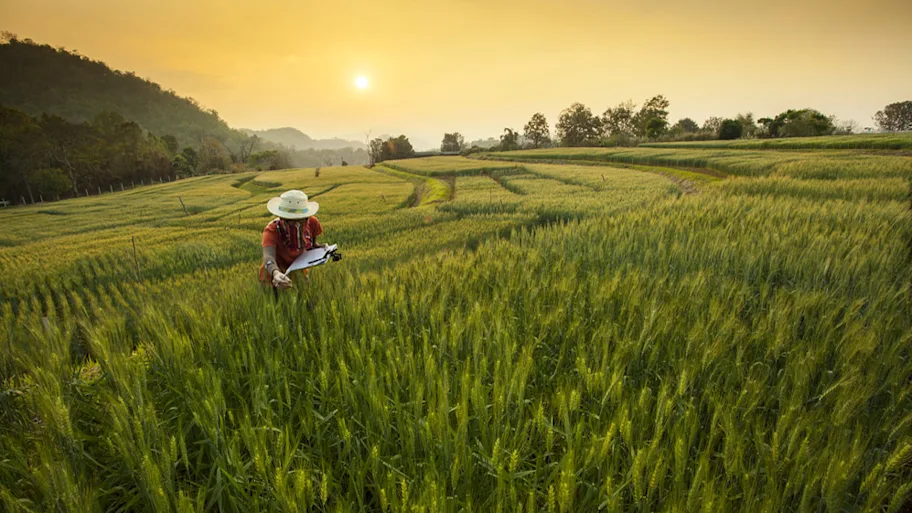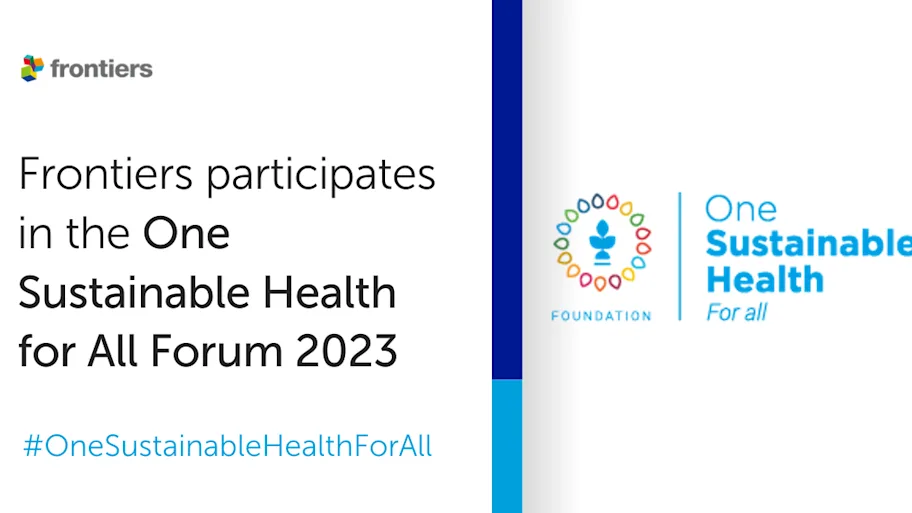
- Science news
- Sustainability
- Science to transform our global food system: EAT Food Forum
Science to transform our global food system: EAT Food Forum

On June 12th and 13th Frontiers attended the EAT Stockholm Food Forum 2017. The focus was on how science, politics, business and civil society can work together to transform the global food system – taking into consideration the interconnectedness of food, health and the environmental sustainability of the planet.
“Food is – directly or indirectly – linked to all the Sustainable Development Goals” – Dr Gunhild A. Stordalen, EAT-founder and president.
— By Linoy Markram
Food, health, and environmental sustainability: interconnected issues to be tackled when transforming our global food issues. How? Experts from all sides came to discuss at the EAT Stockholm Food Forum 2017.
Global food production for an increasingly growing human population is placing unparalleled pressure on agro-ecosystems and marine resources. It contributes to the loss of biodiversity, deforestation, climate change and soil degradation. Livestock production alone uses 33% of the Earth’s freshwater and emits 18% of all greenhouse gases[1]. And not only are we straining our natural resources in our current food system – we are also producing huge amounts of waste, pollution, and chemicals toxins in the process.
Food is central to health and survival (SDG 3). In the current global food system 795 million people go hungry and lack the essential nutrients to live healthy lives while, in 2015, more than 2-billion people worldwide were considered overweight or obese which in turn “accounted for 4.0 million deaths and 120 million disability-adjusted life years”[2].
Clearly, the global food system needs a profound and systematic transformation to deal with these challenges. The question then comes down to how are we going to nutritiously and sustainably feed a growing global population estimated to reach 9.8 billion by 2050[3]? And is there consensus of what constitutes a “healthy” and “sustainable” food system?
On June 12th and 13th Frontiers attended the EAT Stockholm Food Forum 2017. The focus was on how science, politics, business and civil society can work together to transform the global food system – taking into consideration the interconnectedness of food, health and the environmental sustainability of the planet.
Dr Gunhild A. Stordalen, EAT-founder and president, highlighted that there is “no consensus on how the future food system can deliver healthy diets to a growing population within planetary boundaries”. Thus, the EAT-Lancet Commission is collaborating with leading interdisciplinary researchers to get us closer to science-based targets for this future food system. As Professor Dariush Mozaffarian said during his talk: “we have to be sure that we are intersecting science and policy”.
Global food companies are also coming together to identify business opportunities to produce healthier food within planetary boundaries in collaboration with the World Business Council for Sustainable Development, and through FReSH. With help from psychologists and consumer PR gurus such as Matthew Freud, from Freuds, it might even be possible to change consumer behavior towards having an increased appetite for these healthier and more sustainable options.
Emerging on the side of the big business, there are potentially key disrupters revolutionizing the food landscape with brand new ways of thinking about food systems. These are the small tech startups that are driving the latest innovations on how we source food and on how we can link up food production with the technological advances that are sprouting in different fields of research. Dr. Uma Valeti, at Memphis Meats, showed us how cell cultivation techniques can now be used to produce meat in the lab, providing a safer source of animal protein for consumers and for the planet. On the crop side of things, Dr. Caleb Harper, at MIT Media Lab, is building tools that will allow us to create custom-made environments to grow our own food in optimal conditions – freeing ourselves from the constraints of our predetermined geographical climate or urban environments.
One of the key messages from Stockholm is that by opening these hotspots of research and creativity, we can start building a much-needed multidisciplinary strategy to put sustainable food on the table. The future of food, as Dr. Caleb Harper puts it, ‘is about creating tools that are shared on a network with the next one billion farmers of all different kinds to simply ask and answer their own question of what if’.
Transforming the global food system to one that is equitable, healthy, and environmentally sustainable is an overwhelmingly immense task that requires all stakeholders to join forces and disrupt the current paradigms of how we approach food. Farmers – of which almost half are women – need to have a bigger presence in the discourse.
Challenges along the food supply chain need to be examined and tackled from different perspectives. Solutions to one problem could create problems in other parts of the system – therefore trade-offs and synergies need to be considered. We need to have a systems approach where we bring plant science, agronomy, engineering, nutrition, social science, psychology, and various other disciplines around these issues to have a truly integrated approach to this multidisciplinary discourse.
We all need to work on implementing solutions at all levels, from individuals, civil society and cities, to business and policy, in order to collectively transform food systems and to bring us closer to an effective and sustainable society. And by fixing the food system, we will be causing a domino effect that will contribute to all the Sustainable Development Goals. #foodcanfixit
—-
Frontiers will be launching a transdisciplinary journal dedicated to issues tackling the Global Food System – bringing different disciplines together to tackle food challenges with a policy focus. The journal is accepting Editor applications – you can apply or give us suggestions by writing to sustainablefoodandagriculture@frontiersin.org
Check out our related Section and Research Topics:
Nutrition and Environmental Sustainability
Transitions to Sustainable Food- and Feed-Systems
The Rising Trend of Flexitarianism
[2] “Health Effects of Overweight and Obesity in 195 Countries over 25 years”
Published June 12, 2017 in The New England Journal of Medicine






